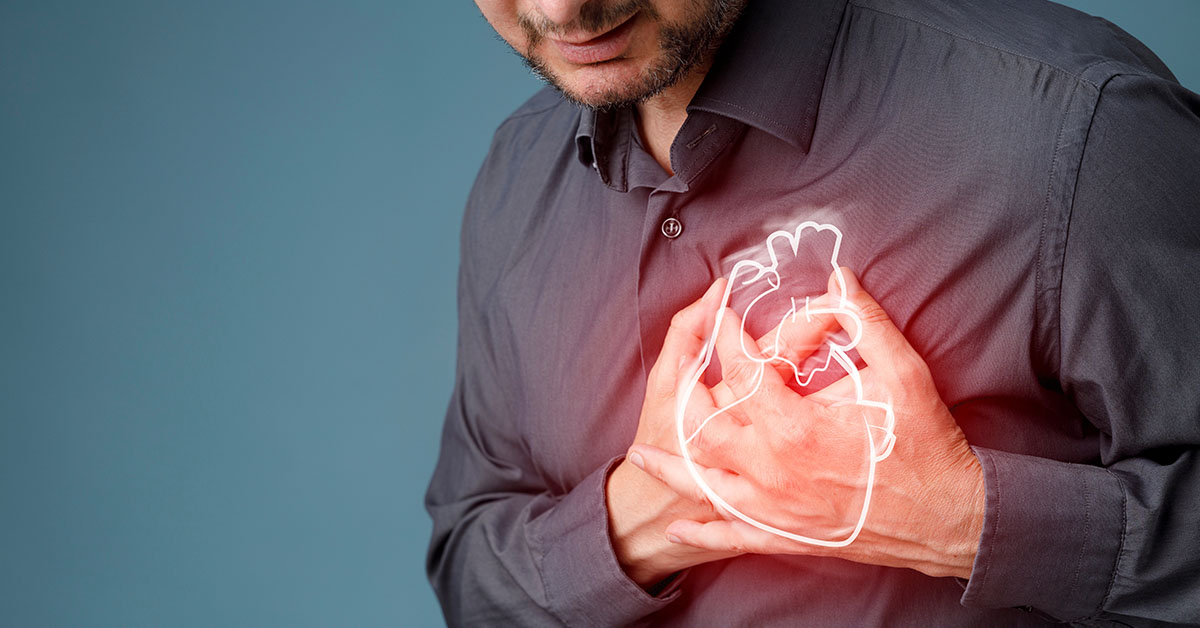The term heart disease refers to several heart-related health issues, including angina, arrhythmia, heart failure, and coronary heart disease. Considering that more than one in every 3 adult males suffers from heart disease, recognizing these early signs may prove vital. Worryingly, heart disease can also occur without any symptoms at all, with a heart attack being the first time the person realizes they even have issues. Luckily, there are several signs that you can look out for before it reaches the point of cardiac arrest. Some of these symptoms may initially disappear only to reappear again later.
The Difference In Symptoms Between Men and Women

Heart disease affects men differently from women due to anatomical differences, such as wider blood vessels and larger hearts in men. Women tend to develop cholesterol buildup in the microvasculature, while men tend to develop it in the largest arteries responsible for supplying blood to the heart. The symptoms experienced before and during a heart attack also differ from one sex to another. Chest pressure is the most common symptom reported by men. Women are more likely to experience symptoms related to their abdomen, back, jaw, neck, and throat.
Signs of Blood-Vessel-Related Heart Disease

Many types of heart disease result from a narrowing of the blood vessels. Your heart struggles to pump oxygen-rich blood throughout your body due to the buildup of plaque. One common sign of blood-vessel-related heart disease is chest pain or angina. People also typically experience an intense feeling of fatigue and difficulty breathing properly. Other signs of heart disease related to the blood vessels include an irregular heartbeat, and issues with the limbs, such as weakness, tingling, pain, numbness, and swelling.
Read More: These Foods Help Lower Dementia, Type 2 Diabetes, and Heart Disease Risk, Study Says
The Signs of Heart Arrhythmia

People experiencing heart arrhythmias often report a feeling of pressure on their chest which causes distressing discomfort. This feeling can last anywhere from half an hour to several hours. Feeling short of breath after physical activities is another reported sign. This is even after performing tasks that require only moderate exertion, such as climbing one flight of stairs or walking. Other symptoms include feeling dizzy, fainting, and an irregular heartbeat.
Signs Of A Heart Attack and Stroke

A heart attack takes place when heart disease progresses to the point that blood no longer properly flows to the heart’s muscle. Chest discomfort is the most common symptom of a heart attack in males. This discomfort includes a squeezing sensation, pressure, or pain in your neck, jaw, abdomen, and back. The signs of a heart attack include nausea, lightheadedness, excessive sweating, and shortness of breath. Signs of a stroke include numbness, weakness, confusion, intense headaches, and changes in vision.
Heart Infections and Pre-Existing Conditions

Heart infections can also lead to cardiovascular disease. The signs of a heart infection include skin rashes, fever, and a dry cough. Your likelihood of developing heart disease is also increased by certain risk factors. For example, you are at greater risk of developing heart disease if you already have a condition such as high blood pressure or diabetes. Left untreated, heart infections can lead to serious damage to the heart valves, resulting in complications such as heart failure and stroke.
The Bottom Line

Recognizing the signs of heart disease is the first step to treatment and potential recovery. The biggest concern is that many men are not even aware that there is a problem to begin with. Around 50% of males who die from coronary heart disease are unaware of their condition due to a lack of symptoms, according to the CDC. Therefore, early detection is often a case of life and death. Whether you currently have a heart condition or not, it’s important to act to reduce the factors that can increase your risk. This can help prevent symptoms from arising in the first place.
Read More: Common Supplement May Increase Risk of Heart Disease, Study Finds

